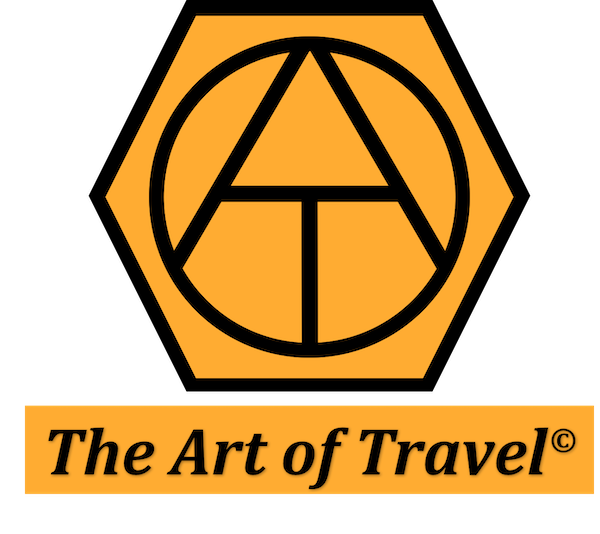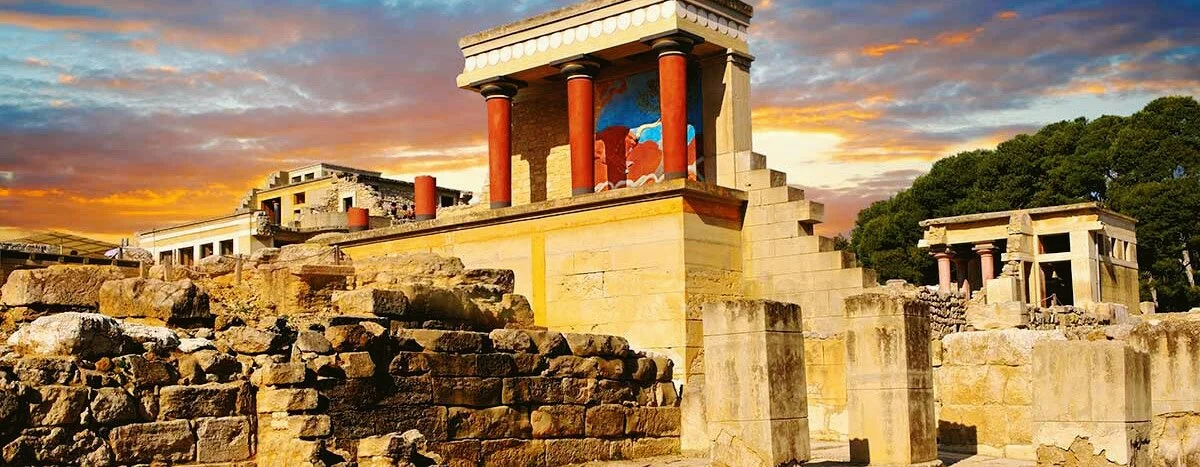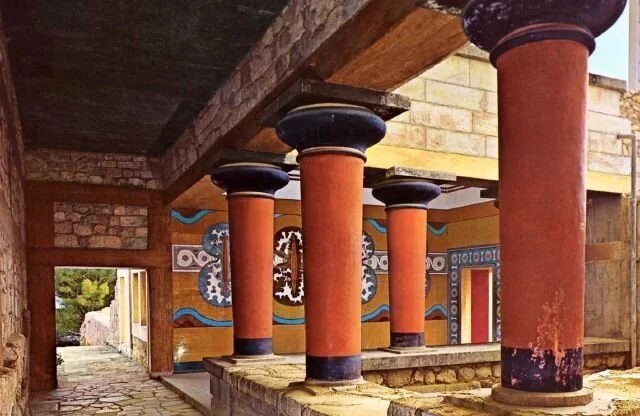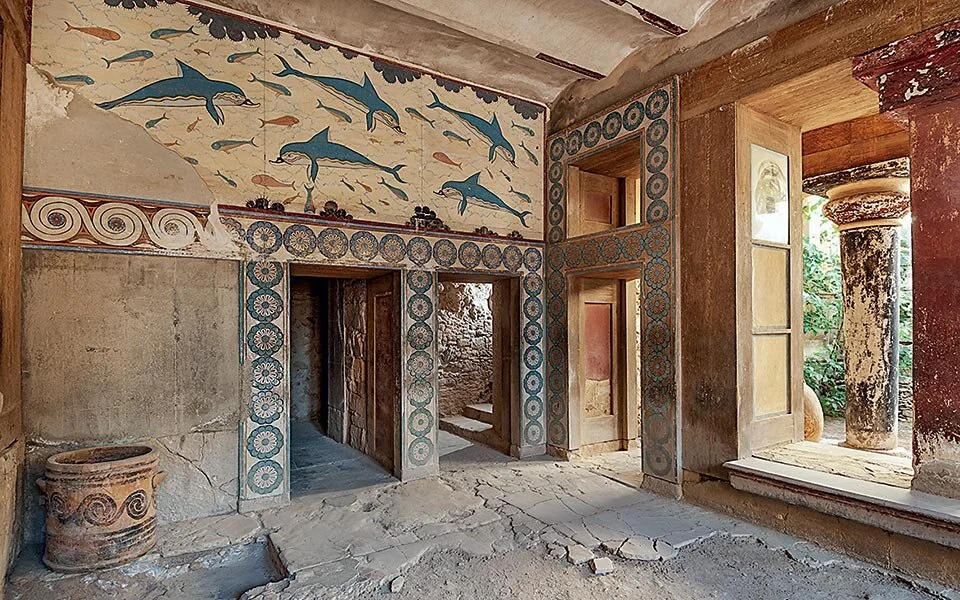The legendary Palace of Minos Knossos, Crete, Greece
The Palace of Knossos, Crete, Greece.
I do not know why, but with the births of the gods, just as in Delos, I felt the urge to dance, and I was about to get up from the stone wall I was sitting in the palace of Knossos and start, but seeing a man in a beige, linen suit and with a straw hat on his head, in the style of Hercules Poirot, something stopped me. He was staring down at the ground a little further ahead, beneath the red columns at the northern entrance. Overwhelmed with curiosity, I stood up and walked towards him, as if I was going to walk past, but I stopped and looked down to where he was focusing his attention. It was a hole in the ground covered with a grating into which he had inserted his hand. Had he seen some treasure?
“Found anything?” I asked him in English.
“I’ m trying to catch them,” he replied, without even turning his head to look at me.
What had he found? I was writhing with curiosity.
“My glasses have fallen in, and I can’t see without them,” he said.
I exhaled deeply disappointed and suggested I try to get them for him as my wrist was slimmer and could reach in deeper. I did finally get them and, after cleaning them, he put them on happily and finally looked at me.
“And here’ s a Scottish lassie, a lady from my parts, or are you Irish, perhaps?”
“Me?” I asked in amusement.
We started to walk together, chatting, and I discovered he was a lover of Minoan history and very much grateful for what Arthur Evans had accomplished.
“Many accuse him of restoring Knossos and turning it into some kind of movie studio, but he wanted people to be able to walk through the palace and actually live it,” he told me.
“You're absolutely right,” I replied, happy to have found a fellow traveller to share my observations with.
The truth was that Evans, in order to protect his findings from storms, had begun to restore only some particular places, but he soon lost control because he really started to enjoy what he was doing. At his own expense, he transformed the ruins into rooms based on his personal vision of Minoan architecture, and it really is more interesting to enter a place that has ceilings and walls instead of just a foundation that reaches the knees, like Phaistos, which you look at with interest but are not charmed by.
The restoration of the Palace of Knossos began almost immediately after its excavation by Arthur Evans
1900 -1930.
“Besides, even his critics say the palace would be a labyrinth without his vision,” I said as we descended the restored stairs with the red columns, “Otherwise how would we see them all?” I added and looked down to where the red-columned stairs continued to give a picture of how the palace had been.
“Oh yes!” he replied, “as a collector, he knew that if he were to have any control over his findings, he would have to make them his own. That is why he decided to buy Knossos, because only as a landowner could he have any say.”
We came out into a clearing and I looked around at the landscape. Crete had been a difficult place to traverse when Evans had arrived in 1894 when it was still in the hands of the Ottomans. Its landscapes had been left untouched, though, and this is what had enchanted him in his travels, before finally reaching this small clearing amongst the pines and raspberry bushes where locals said that the wondrous palace of Knossos had once stood. He started to negotiate the purchase with the Turkish officials and, after a thousand and one negotiations, he was finally able to buy it. He started digging in 1900, offering work to both Christians and Muslims.
The Throne Room, Palace of Knossos, Crete, Greece.
We had reached the Throne Room, whose simplicity had made such an impression on me when I was eight years old, and I gazed around, enchanted once more, at the beautiful depictions of griffins on the murals.
“The ruins were found after just a few weeks' digging. He was lucky,” my Scotsman companion said, and I immediately thought he probably knew Evans' story better than that of the English kings. “He marvelled at everything he found...just imagine...a fantastically evolved civilization when the rest of Europe was still living in caves. And, if the truth be told, not even Londoners of Evans' time had toilets and running water in their homes. He eagerly announced that he had discovered a completely unknown world of 1,500 years before classical Greece, and he needed a name for these ancient Europeans, so he named them Minoans, after King Minos.”
The Queen’s Room, Palace of Knossos, Crete, Greece.
I just managed to grab onto him as he slipped on a large tile as we turned a corner and started making our way down. He held onto my arm for support.
“Be careful where you step,” I said, “so you don't slip again. There's no one else around.”
“I am always lucky enough to find ladies like yourself, and I hold onto them while we both enjoy our walk through archaeological sites,” he answered. “I hope I'm not a burden to you...?” he added with a polite smile.
“Quite the opposite,” I replied, “I am enjoying both your company and your stories.”
It was true that I was absorbed in our conversation and I had completely lost track of the time. When I glanced down at my watch, I panicked. The cruise ship would be sailing in less than an hour.
Summer memoirs from the book: GREECE, The Dance of the Seas




